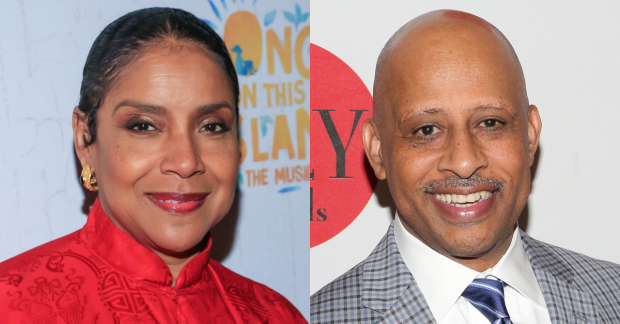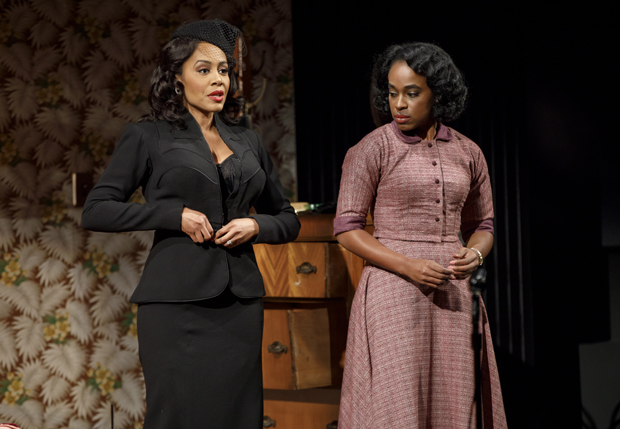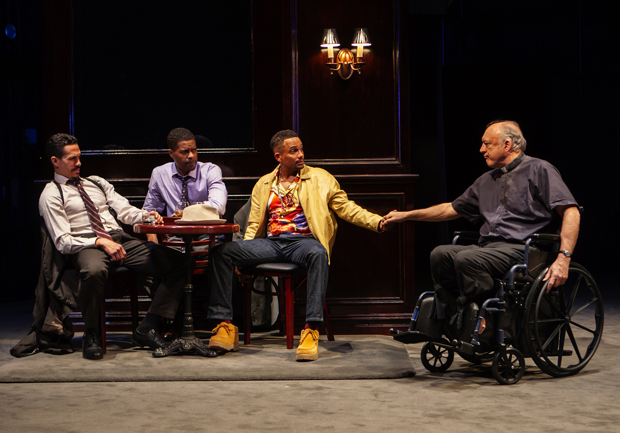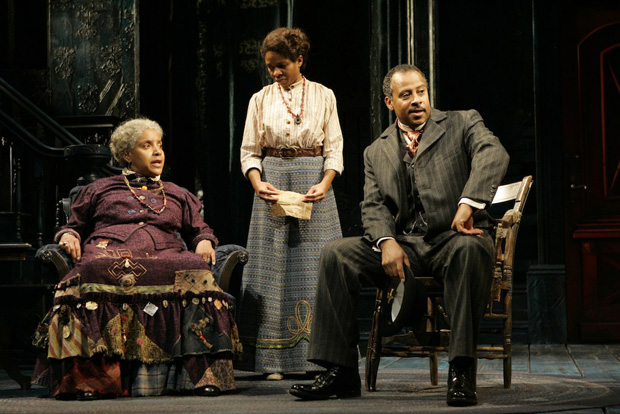When Actors Take the Helm: Phylicia Rashad and Ruben Santiago-Hudson on Making the Leap to Directing
Rashad is calling the shots for ”Our Lady of 121st Street”, while Santiago-Hudson is staging ”Paradise Blue”.

(© Tricia Baron, David Gordon)
When it comes to theatrical multihyphenates, Phylicia Rashad and Ruben Santiago-Hudson are two of the most prolific. Both are well-respected Tony-winning actors who've shared the stage together in August Wilson's Gem of the Ocean in 2004. They're also very active stage directors, whose latest productions, Stephen Adly Guirgis's Our Lady of 121st Street and Dominique Morisseau's Paradise Blue, are currently running at Signature Theater. As both productions prepared to open, Rashad and Santiago-Hudson sat down to discuss how they started directing, what they've learned as actors, and what the future has in store.
Did you always want to be a director? How did you begin?
Phylicia Rashad: I hadn't considered being a director, even though, when, as a Munchkin in The Wiz, Geoffrey Holder did say that every actor should think in terms of becoming a director. I had no conscious thought about it. I began directing at the invitation of Constanza Romero (August Wilson's widow). She called me to say there was going to be a production of Gem of the Ocean at Seattle Rep and she asked if I would direct it. It is a play for which I have great reverence, and I thought "Well, OK. I'll try it." That's how I began.
Ruben Santiago-Hudson: I started directing 40 years ago and then I stopped. I wasn't effective with a particular actor. I wanted him to get somewhere and I didn't know how to without showing him. So I said I shouldn't be a director if I have to show him how to do it. I quit directing for 20 years, and then August Wilson asked me when I was going to direct one of his plays. Three months later, I was back directing, at his invitation.

(© Joan Marcus)
What drew you to Paradise Blue and Our Lady of 121st Street?
Ruben: For me, Paradise Blue is the celebration of a culture. It provides the opportunity for audiences to come in and hear strong, African-American women speak unapologetically, truthfully, and clearly. It scares the sh*t out of some people, I can tell, but it empowers others.
We don't get the chance to see these kinds of women of color onstage, with two completely different opinions that are both valid, that teach and nurture each other. I know and respect the power of strong, clear, truthful black women's voices, because that's what raised me. Dominique has that in her writing, and that's what I love about her.
Phylicia: Great writers, like August Wilson and Shakespeare and Tennessee Williams, capture characters through their speech. It's poetry, and I like poetic text. Stephen has a way of articulating the characters through the things they say and the way they say it. This is a contemporary poetic text.

(© Monique Carboni)
Has your experience as actors influenced the way you work with your cast members from the director's seat?
Phylicia: Each cast is different. Sometimes I've had a cast in which there is at least one person who presents a real challenge. I don't deal with personal problems very well. I make that known right away. There's too much work to be done.
Ruben: The drama's onstage.
Phylicia: Hello! And then you get that golden cast, where it's magic. Then the work can fly. There's no reason to come to work as an actor with anything other than an openness to serve the play. As an actor who does that, I'm most intolerant of actors who don't. Sometimes I have to sit there and hold my hands.
Ruben: [laughs] "Be very patient" is one of the big lessons I teach the directors I'm mentoring. Lloyd Richards was one of the most patient directors I've ever worked with in my life. I'm not Lloyd Richards patient but I'm very patient. An actor said to me not too long ago, "This is good for me." And I said, "I hear that. You can find a way to utilize that, but it's not good for the whole thing. It doesn't give the audience access blocking-wise, it doesn't give us access emotionally. What I need you to think about is this." As opposed to "Don't do that."
Phylicia: Sometimes you have to say, "Don't do that."
Ruben: I say, "Be careful of that." That's my note. "I saw what you just did and that does not work."
Who are the writers that you want to work with?
Phylicia: Chadwick Boseman is a very good writer. Years and years ago, he sent me a copy of his play Deep Azure. I'd like to direct some of Chad's work.
Ruben: I'd love to see Phylicia tangle with Quiara Alegría Hudes. I want to work with Marcus Gardley, Nambi Kelley, Nathan Davis. I want to be able to give people opportunities. I want to be in the seat that allows people in the room. There's a need out there for people of color to tell our stories, and not have other people hold up the measuring stick about who we are. The only way we can is if there are producers and directors and writers who give you the image. We need Phylicia. We need young directors of color.
Phylicia: They're coming. I look at this coming generation of artists and they're smart and unique and have another vision.

(© T Charles Erickson)
Do you have a dream project together, either as actors or director-actor?
Ruben: I want another shot at Gem of the Ocean.
Phylicia: Do you?
Ruben: I want to see you as Aunt Esther again, and I want another shot at Caesar one more time, for a real run. If we can get a shot at that one more time…A decent run. You don't have to keep us forever. Maybe in London.
Phylicia: How about going to South Africa? How 'bout the Market Theater.
Ruben: It's tiny.
Phylicia: I know, but it's a great place. Oh, you want to do big. OK.
Ruben: I don't want to do big. But Gem of the Ocean at the National in London? Just because I know they can put us in a nice flat. [laughs] That's all. Gem of the Ocean would be something.
Phylicia: I love that play.









